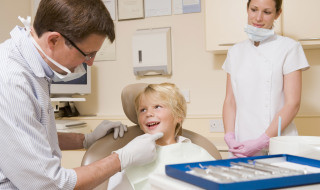 The advice comes from UK-wide dental defence organisation MDDUS, which is frequently contacted by practitioners unsure of how to proceed when they suspect a child’s welfare is at risk.
The advice comes from UK-wide dental defence organisation MDDUS, which is frequently contacted by practitioners unsure of how to proceed when they suspect a child’s welfare is at risk.
Rachael Bell, dental adviser to MDDUS, says: ‘We would ask all practitioners and their dental team to play their part in protecting children and vulnerable adults under their care.
‘Early intervention can make all the difference in cases of suspected abuse or neglect and dentists need to act.
‘Ignoring any signs of neglect can have serious implications for the child, and the practitioner could face GDC (General Dental Council) sanctions.
‘It can be helpful to discuss your initial concerns with a colleague but the decision as to whether to act is ultimately the responsibility of the treating dentist.
‘Practitioners may be worried that reporting their suspicions or concerns will result in a patient complaint or even aggression towards the practice and its staff.
‘However, their main concern must always be to put the patient’s interests first, particularly the welfare of any vulnerable child or adult.’
It is also important that signs of dental neglect in children are not ignored.
Rachael continues: ‘If a parent consistently fails to bring their child in for check-ups or shows neglect towards their child’s dental needs, then this should be addressed.
‘Good records of your attempt to address the concerns should be made in the records.
‘Dental neglect may only be one aspect of a bigger picture of neglect and the child may face greater risks the dentist is not aware of.
‘In cases of dental neglect, dentists should discuss their concerns with the child’s parents and offer support and guidance.
‘If you still have concerns regarding dental neglect, you could liaise with other professionals such as the child’s health visitor to see if they share your concerns or make a decision to contact the local authority social work services.’
The GDC states: ‘You must take appropriate action if you have concerns about the possible abuse of children or vulnerable adults.
‘You must know who to contact for further advice and how to refer concerns to an appropriate authority such as your local social services department.
‘You must find out about and follow local procedures for protection of children and vulnerable adults.’
Child Protection and the Dental Team offers guidance and information for practitioners on safeguarding children: www.cpdt.org.uk.
Information can also be found on your local authority website.


